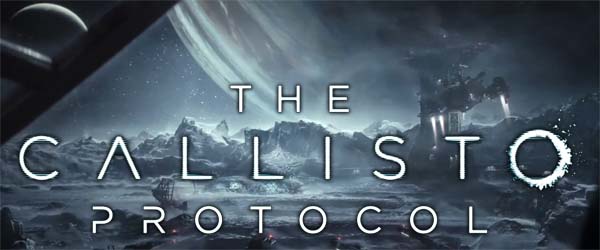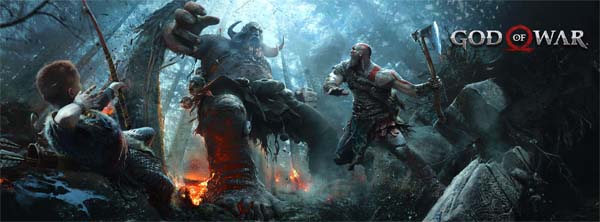
I saw a lot of social media posts in the days after Callisto Protocol's release complaining about the game being awful. Some said it was buggy and riddled with performance issues. Others said it was just a bad game, and would be bad even if it were stable.
I didn't experience a lot of the technical issues (on PS5) that others were reporting. But I also didn't start playing till later that weekend, so had the benefit of the day-1 patch. Maybe that fixed a lot of the technical complaints? Yeah, there were still some lingering technical issues, but they were mostly nagging problems that I could look past.
So I went through most of the first half of the game thinking "This ain't so bad." It wasn't very good either. But it seemed like it was being unfairly maligned. It's Dead Space, but just ... not good.
Callisto Protocol is borderline plagiarism of Dead Space, but not a very good copy.
But as I got into the middle of the game's campaign, my opinion began to change. The issues and frustrations mounted until they boiled over in the game's first boss fight (which doesn't happen until more than halfway through the campaign). Callisto Protocol is just not very well designed or though-out. It suffers at fundamental levels of gameplay design.
Space Zombie Punchout
Callisto Protocol's problems start with the awful melee and dodge system -- which is kind of the whole gimmick of the game. Instead of pressing a button to trigger a dodge, the character automatically dodges left or right if the player is pressing the left analog stick left or right (respectively when the enemy makes an attack. The character will also block if the player is pressing backwards when the enemy attacks.
It's a system that feels more like Mike Tyson's Punchout than any action shooter I've ever played. But where Punchout is a boxing game that features a stationary opponent ducking left or right to dodge the punches of a single opponent lined up directly in front of you, Callisto Protocol is ... not that. The character in Callisto Protocol is ambulatory, and attempting to navigate an environment while also fighting multiple enemies at both melee and at range.
I could not get the hang of which direction I should be dodging -- except against bosses.
I found it very difficult to get the hang of the melee combat -- at least outside of boss fights. Strangely, the boss fights seemed to have the most clearly telegraphed attacks and reliable dodging. Outside of boss fights, however, enemies are frequently zombie-like monsters that rush at the player and shamble around, making it difficult to read their movements. As such, I never know which direction to dodge. And even when I do seem to correctly dodge, I sometimes take damage anyway, which leads to the next big problem. Pretty much every time I had to engage in melee combat, I would die and have to retry.
[More]
7280ae0d-0d27-4b73-bd65-d0a7184a805a|2|3.0
Tags:The Callisto Protocol, Striking Distance Studios, Krafton, quicktime event, melee, dodge, science fiction, horror, shooter, zombie, arcade, Dead Space
During my recent playthrough of the new PS4 exclusive God of War, I noticed that I actually missed the quicktime events that were made famous (and marketable) by the original PS2 God of War. I liked the first two PS2 God of Wars' brutal treks through Greek mythology, but I wasn't a die-hard fan. I was always more of a Devil May Cry kind of guy. So I was surprised to feel nostalgic over a feature that had been removed from those games. I was double-surprised by the fact that I was nostalgic over a feature that most of the gaming community (including myself) has come to despise.
The series that popularized quicktime events has seemingly abandoned them.
Quicktime events (or "QTE", or "Quick Timer Event" as it was called in the manual for Shenmue) were a fairly innovative and well-received feature when the first God of War released in 2005, and that game received perfect scores from many critics. At the time, QTEs were considered an excellent way of providing a flashy, cinematic moment, while still maintaining the interactivity of the player experience. In the case of God of War, this was mostly accurate.
Then the imitators started rolling in (and have been continuing to roll in ever since), and many (if not most) implementations of QTEs have fallen flat on their faces and infuriated players and critics. Trash like Spider-Man 3 was just embarrassing. Even otherwise "good" games, like Resident Evil 4 have been tarnished by poor executions of QTEs. Many games have ditched traditional QTEs in favor of similar button-mashing or prompted actions. The new PS4 God of War is a prime example. But these are basically the same thing.
Spider-Man 3 has some of the most egregiously-bad QTEs that I can remember.
In the years since the original God of War, QTEs have become a bane on gaming, and many players would like to see them completely gone. In fact, many developers have begun phasing them out. Sony's PS4 God of War is, again, a prime example. But I'm not so sure that QTEs deserve the automatic and unconditional hate that they receive. So I want to spend some time to take a look at what usually makes QTEs work, what usually makes them not work, and whether there may actually be merit to including them in future video games... [More]
20234e41-eedb-488f-8df6-a6c8093cd74e|3|4.7
Tags:quicktime event, quick timer event, button mashing, trap, cutscene, God of War, Shenmue, Spider-Man, Bayonetta, Sony, SCE Santa Monica Studio

Vikings and norse mythology seems to have been a popular concept in games recently. Hellblade: Senua's Sacrifice, for instance, is an excellent hack-n-slash adventure through Norse hell. I've also been playing the Wasteland-like RPG Expeditions: Vikings on Steam (which I'm hoping to review soon). I also have games like Mount & Blad: Viking Conquest and Total War: Thrones of Britannia on my short list of games I'd like to play. And there was also the Viking character in For Honor.
Now, Sony's PlayStation flagship God of War has jumped from Greek mythology to Norse mythology. Having killed all the Greek gods, Kratos has apparently settled down in the mythological Midgard with a wife and son, only for his wife to die and his son be attacked by the Norse god Baldr. This sends Kratos and Atreus on a father-son bonding adventure to spread Atreus' mother's ashes from the highest peak in all the realms, and to learn why the Aesir are suddenly keen on hunting them.
Norse mythology seems to be a popular subject in media lately.
A father-son murder team
Atreus has some of the same problems that The Last of Us has with Ellie. Atreus doesn't feel vulnerable enough to demand protection, and he's rarely relevant outside of combat, except for his running commentary about what you're doing. Because of this, the actual game rarely feels like it's about protecting or escorting Atreus. And even though the game is ostensibly about Kratos teaching Atreus how to fight and be a man, the player never has an opportunity to actually teach the kid or take on any parental responsibility for him. It's just about Kratos throwing axes at draugr, and Atreus occasionally shoots them or jumps on their heads to help you out. The puzzle sections rarely require using Atreus (other than occasionally shooting something with his bow or having him scamper through a small tunnel).
Atreus is basically just an extra ranged attack.
That being said, I think that God of War makes some strides in the right direction (compared to The Last of Us). The player (and Kratos) can command Atreus to attack a target with his bow, which is one of the easiest and most consistent ways to deal stun damage to enemies, which opens them up to an intant-kill attack from Kratos. It's also a strategy that is pretty much essential on the harder difficulties. This creates a much greater sense of playing in tandem with Atreus, as he and Kratos often work together to defeat foes.
Atreus and Kratos can also break each other out of being grappled or stunned. I've never gotten a "Game Over" as a result of Atreus being defeated, so I'm not sure if that's a possible fail state. Being grappled or stunned only seemed to ever temporarily take Atreus out of the fight and negate the ability to use his bow. Either way, this is an improvement over Ellie from The Last of Us, who (as far as I recall) operated entirely independently from Joel, was never at any risk, and could be completely ignored for most of the player's time actually playing the game.
Kratos and Atreus can break each other out of enemy grapples and support each other in combat.
The important take-away here is that, unlike with Ellie in the combat encounters of The Last of Us, I never forgot that Atreus was there when playing God of War... [More]
569c96c8-73ad-4401-b3d2-4d2c9f75a74d|1|5.0
Tags:God of War, PlayStation 4, PS4, Sony, Sony Interactive Entertainment, exclusive, SCE Santa Monica Studio, sequel, Kratos, Atreus, Baldr, Freya, Magni, Modi, Midgard, World Serpent, escort quest, axe, Viking, Norse mythology, mythology, quicktime event, shifting the goalposts
|

| 12 | | | | | | | 60 | | 11 | | | | | | | 55 | | 10 | | | | | | | 50 | | 09 | | | | | | | 45 | | 08 | | | | | | | 40 | | 07 | | | | | | | 35 | | 06 | | | | | | | 30 | | 05 | | | | | | | 25 | | 04 | | | | | | | 20 | | 03 | | | | | | | 15 | | 02 | | | | | | | 10 | | 01 | | | | | | | 05 |
|